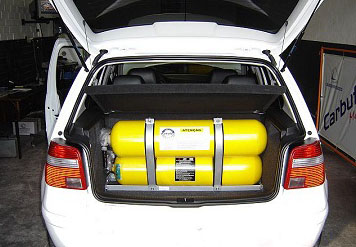On May 13, President Bola Tinubu directed the mandatory procurement of compressed-natural-gas-powered vehicles by all government ministries, departments, and agencies.
The President’s directive furthered Nigeria’s effort to transition to cleaner energy as CNG-enabled vehicles have been adjudged to produce lower emissions, even as they present a more affordable alternative for Nigerian energy consumers.
This comes nine months after the president approved the establishment of the Presidential Compressed Natural Gas Initiative (PCNGI). According to Ajuri Ngelale, the Special Adviser to the President on Media and Publicity, this initiative is poised to revolutionize the transportation landscape in the country, targeting over 11,500 new Compressed Natural Gas (CNG)-enabled vehicles and 55,000 CNG conversion kits for existing Premium Motor Spirit (PMS)-dependent vehicles.
On May 29, the Federal Government commenced the rollout of compressed-natural-gas-powered buses and tricycles, beginning from Ilorin, the Kwara State capital.
“These efforts provide a promising opportunity for Nigeria to enhance the transport sector,” said Byencit Duncan, Project Coordinator at PAM Africa.
According to her, Nigeria has the potential to leverage and see CNG as the alternative to traditional petrol and diesel systems.
Speaking further, she noted that a shift to CNG vehicles can potentially reduce the country’s reliance on imported petroleum products and also help foster economic benefits by utilizing our resources.
“A shift to CNG vehicles can reduce the country’s reliance on imported petroleum products and help expand the energy mix, not just relying on petroleum products but also gas. It also fosters economic benefits by utilizing our resources.”
While highlighting the benefits, she said, “The benefits of compressed natural gas (CNG) vehicles include cost savings due to their cheaper fuel, reduced pollution, economic advantages for both the economy and individuals, support for the domestic use of natural gas, development of the CNG market, increased income and reduced importation bills, additional revenue for the government, extended engine life, and enhanced energy security.”
Nigeria joins other African countries like Algeria, Tanzania, and Egypt in embracing CNG as a viable alternative to traditional fuels.
